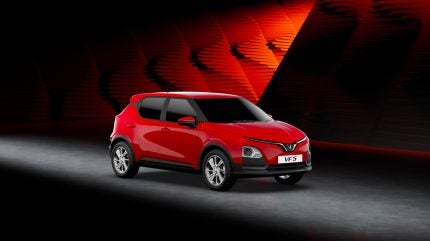
Vietnam’s new vehicle market expanded by 8% to 26,079 units in March 2025 from 24,133 units a year earlier, according to wholesale data released by the Vietnam Automotive Manufacturers Association (VAMA). The data do not include sales by Mercedes-Benz, Hyundai, Tesla, Nissan, domestic automaker VinFast, and a number of Chinese brands that have entered the market in the last two years.
VAMA’s members reported steady growth last month following, reflecting continued strong economic growth in the country. The latest government data show GDP expanded by 5.9% year-on-year in the first quarter of 2025, moderating from 7.5% in the fourth quarter of 2024, driven by strong domestic consumption and exports.

Discover B2B Marketing That Performs
Combine business intelligence and editorial excellence to reach engaged professionals across 36 leading media platforms.
In the first quarter of 2025 vehicle sales rose by 16% to 58,936 units from a weak 50,847 units a year-earlier, according to VAMA data, with sales of passenger vehicles rising by 11% to 40,582 units while commercial vehicle deliveries surged by 28% to 18,354 units. Truong Hai (Thaco) Group, the local assembler and distributor of several overseas brands and a major player in the commercial vehicle segment, reported a 17% sales rise to 19,094 units. This includes a 20% rise in Mazda sales to 6,341 units and a 65% jump in Thaco commercial vehicle sales to 5,599 units, while Kia sales declined by 1% to 6,200 units.
Toyota’s sales surged by 62% to 11,830 units year-to-date, driven by strong Vios volumes, while Ford’s sales rose by 18% to 9,482 units; Honda 6,084 units (-1%); and Mitsubishi 7,920 units (+31%).
Domestic automaker VinFast announced separately that it delivered 35,100 battery electric vehicles (BEVs) to customers in Vietnam in the first quarter of 2025 year, with the VF3 and VF5 models accounting for around 68% of the total. Hyundai passenger vehicle sales data for March were not available, but its local distributor Tan Chong International said the brand’s sales rose by 9% to 6,096 units in the first two months of the year.
The Vietnamese Ministry of Finance announced in early March that it has extended the vehicle registration tax exemption for battery electric vehicles (BEVs) until the end of February 2027, or by an additional two years.






